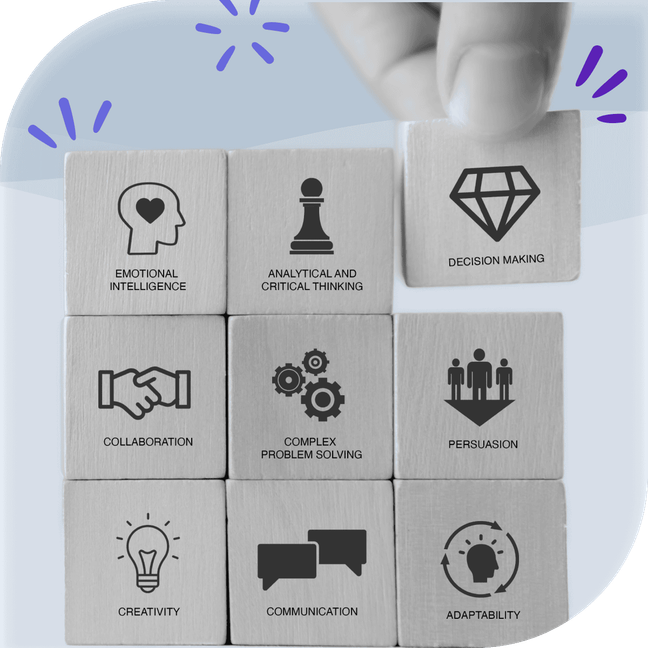Core Competencies

Core competencies are fundamental qualities, skills, advantages, and abilities that are desirable in individuals or organizations. An organization views these qualities as central to its business practices. The core competencies businesses require vary widely depending on the specific industry, business goals, culture, and industry norms.
Core competencies is a term introduced by Gary Hamel and C.K. Prahalad in the 1990s. Originally, core competencies were focused on businesses. However, in recent years, core competencies have been further developed to include employee core competencies.
In terms of human resources, every employee won’t have all of the core competencies employers desire. However, businesses can find their ideal candidates by having a list of desirable core competencies available during the interview process. Moreover, organizations can work to cultivate their desired core competencies, which can give them an advantage against the competition.
Core competencies should meet these three universal conditions:
- Provides benefit to the organization, customers, or clients
- Difficult to acquire or for others to replicate
- Applicable across a range of uses
Example of Core Competencies
While some core competencies are job- and task-specific, core competencies might also include soft skills. For example, an organization may have a list of these basic core competencies for all employees:
- Customer-focused: Employees who interface with customers need to have solid customer service and interpersonal skills. With a customer-centric outlook, public-facing employees such as salespersons and customer service reps can more effectively represent the company. To determine if applicants are customer-focused, companies can ask scenario-based questions with hypothetical interactions with customers.
- Collaborates well with other employees: Teamwork is essential in most businesses, including those where employees work autonomously. All employees will have to collaborate with someone, whether co-workers or supervisors. In the hiring process, job applicants can display effective collaboration skills by how they interact with other people who have applied for the job and with interviewers.
- Thorough and detail-oriented: All employees of an organization should be able to thoroughly complete tasks without a lot of oversight. Interview questions and a thorough resume review can tell a hiring manager much about the applicant.
Related Terms
Human Resource Competencies
is a term that refers to an HR department’s analysis and execution of the team’s interviewing skills, conflict resolution abilities, and an efficient hiring funnel.
Performance Management
refers to how a supervisor manages and reviews an employee’s performance. This might include assisting the employee with goal setting.
Management Competencies
refer to how leaders execute their roles in the success of a business. These skills might include team building, conflict resolution, delegation, and interviewing skills.